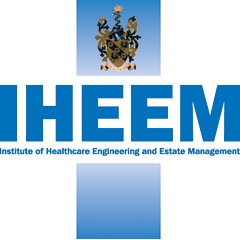The Permit-to-Work System (MGPS)
- 4th January 2017
- Return to News Home
The role of the Designated Medical or Nursing Officer (DMO / DNO) is described as follows:
This is the person within each Department with whom the AP (MGPS) liaises on any matters affecting the MGPS and who would give permission for a planned interruption to the supply.
The Responsibilities of the Designated Medical and Nursing Officers (MGPS) are described as follows:
• Signing the Permit to agree that the system can be taken out of use for servicing or maintenance.
• Advising other clinical staff that the system is not available for use.
• On completion of the work, signing the permit, accepting the system back into use.
• Advising clinical colleagues and departmental heads that the system is/is not available and fit/unfit for use.
• Advise on special MGPS requirements for their department during isolation, emergency supply provision
• Take appropriate action in event of an emergency, for alarms, fire, or failure of the pipeline system
• Responsibility for isolating AVSU’s in the event of an emergency
However, how many times is the DMO/DNO given the appropriate notice for works to be done?
How often do they actually check the various stages of the work?
i.e.: Do they actually inform all other staff of the works being carried out or completed?
Do they actually ask to be shown the delivery pressure of the gas(es) prior to and after the works are completed?
Do they witness the AVSU(’s) being isolated?
Do they witness or check that the AVSU(’s) are actually re-instated?
Do they actually inform all other staff of the works being carried out or completed?
The truth is that they always seem to be too busy to see the works through in the correct manner.
When one considers the importance of the Permit to Work system and the fact that the final signature accepting the Medical Gas Pipeline System(s) back into use is that of the DMO/DNO, it is worrying that the DMO/DNO may not understand or realise the potential legal implications they may be faced with should things go wrong through the lack of thoroughness in their actions on signing off the Permit.
This, in my opinion, strengthens the need for all DMO/DNO and Nurse Training in the field of Medical Piped & Portable Gas Systems and is something we should all be aware of and probably debate further.
Paul L. Henton
M.D. - HAC Medical Gas Division



